HOW TO DESCRIBE YOUR FAMILY IN FRENCH

More often than not, we asked to talk about our family in French in an examination or when we visit our neighbouring French-speaking countries. This lesson focuses on the guidelines to clearly and simply describe your family in French with little or no difficulty. This lesson will focus on three main objectives:
1. Knowing how to call the members of your family in French. 2. Knowing how to describe the structure of your family in French. 3. Write an essay on the topic “ma famille” (my family).
I./ Knowing how to call the members of your family in French Les membres de la famille (members of the family)
II./ Knowing how to describe the structure of your family in French To describe the structure of your family in French, you need to follow the guidelines below: 1. Ton nom (your name). Here, you need to mention your name in any of the following formats: . Je m’appelle Elvis Fiati. Mon est Fiati, mon prénom est Elvis. (My name is Elvis Fiati. My surname is Fiati, my First name is Elvis) . Je me nomme Elvis Fiati. (I am by name Elvis Fiati) . On m’appelle Elvis Fiati. (I am called Elvis Fiati)
1. Ton village natale (your hometown) Here, you need to talk about where you come from as shown in the example below: . Nous sommes de Hohoe dans la région de la Volta du Ghana. . Nous venons de Krobo Adumase dans la région orientale du Ghana.
2. Combien de membres comprend ta famille (how many members is your family made up of?) In this case, you need to mention the number of members in your family depending on the type of family (nuclear or extended) you want to describe as shown in the examples below: . Ma famille comprend neuf (9) membres. (my family is made up of 9 members) . Il y a neuf membres dans ma famille. (there are 9 members in my family)
3. Nomme les membres de ta famille (name the members of your family) Here, you need not to mention their real names but who they are to you (your relationship with them). See the example below: . J’ai un frère, deux sœurs, mes parents, ma grand-mère, mon oncle, ma tante et moi-même (I have a brother, two sisters, my parents, my grandmother, my uncle, my aunt and myself)
4. Tu aimes ta famille? Pourquoi? (do you like your family? Why?) Here, you need to say whether you like your family or not and state why you do or do not like your family. See the examples below. . J’aime ma famille parce que nous sommes courageux et gentils. (I like my family because we are courageous and kind) . Ma famille est riche et honorée dans ma localité. J’aime bien ma famille. (My family is rich and honoured in my locality. I really like my family) III./ Write an essay on the topic “ma famille” (my family) Ma famille Je m’appelle John Mahama. Je suis de la famille Mahama. Nous sommes de Bole Banboi dans la région du nord au Ghana. Il y a cinq (5) personnes dans ma famille: Mr et Mme Mahama, mes parents, mon frère ainée Ibrahim Mahama, ma sœur Alima Mahama et moi-même. Nous habitons à Accra. Mon père et ma mère ont soixante-dix (70) et soixante-cinq (65) ans respectivement. Ibrahim a trente-huit (38) ans, Alima a vingt-cinq (25) ans et moi j’ai trente-cinq (35). Mon père est docteur, ma mère est comptable, mon frère est ingénieur, ma sœur est commerçante et moi-même je suis cultivateur et politicien. Notre plat favori est la Banku avec la sauce de gombo. Nous sommes chrétiens donc nous allons à l’église chaque dimanche. Mes parents dont riches et bien honorés dans la société et nous les enfants sommes très respectueux. J’aime beaucoup ma famille.
Try Yourself With This Exercise In not more than 180 words, describe your family to a friend in French. Thank you for reading. Kindly share the lesson for others to also benefit from it. Do you have a suggestion or contribution to make? Kindly drop it in the comment box. Merci.

Quick Links
- Course List
- Subscriptions
- French Lessons & News
- GAFT VOLTA/OTI
- Terms and Conditions
- Privacy Policy
- THE FRENCH MASTER GH
Unconventional language hacking tips from Benny the Irish polyglot; travelling the world to learn languages to fluency and beyond!
Looking for something? Use the search field below.
Home » Articles » Talk About Family in French – A Guide to French Family Vocabulary [with Audio]
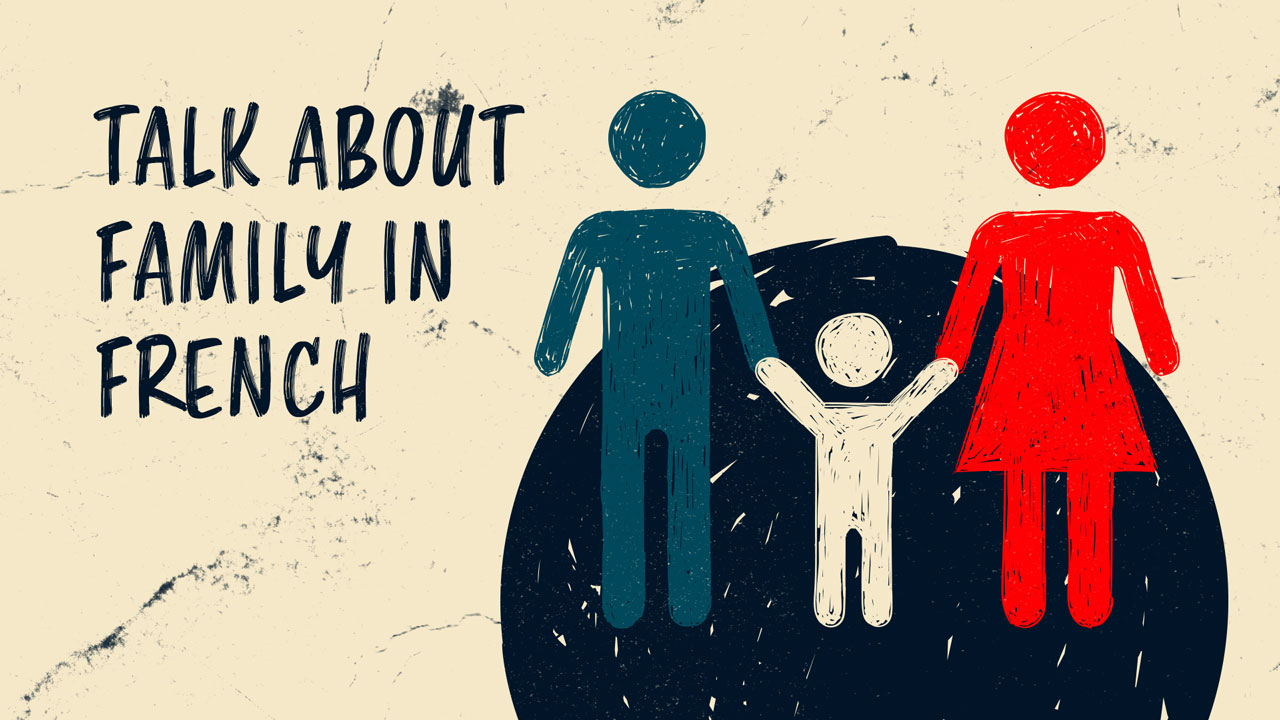
Full disclosure: This post contains affiliate links. ?
written by Alice Cimino
Language: French
Reading time: 13 minutes
Published: Feb 28, 2022
Talk About Family in French – A Guide to French Family Vocabulary [with Audio]
If you’re learning French, you should learn how to talk about family in French. That’s because family is an important topic that often comes up in conversations. In this article, I’ll share the words you need to know, with audio recordings from myself, a native French speaker.
Allons-y! Let’s get started.
Table of contents
French words to talk about your family.
- How to Say “Family” in French: Famille
Rules of Gender, Number Agreement, and the French Family Member Collectives
French terms of endearment for family members, how to write about your family in french – some more vocabulary.
- 1. Qu’est-ce qu’on a fait au Bon Dieu ?
- 2. C’est quoi cette famille?!
- 3. Il a déjà tes yeux
You’re All Set to Talk About Your Family in French!
Psst… Do you like French cinema? Stick around until the end of the article for French movie recommendations that revolve around family!
“Family” in French is famille .
To say “family member” in French you would say membre de la famille . You can also say parent , which also translates to “parent”, as in father or mother.
If you want to talk about family in French, you will need to know the appropriate words to describe the different liens de famille (“family relationships”).
Immediate family:
- la femme or l’épouse – “the wife”
- le mari or l’époux – “the husband”
- les parents – “the parents”
- la mère – “the mother”
- le père – “the father”
- les enfants – “the children”
- la fille – “the daughter”
- le fils – “the son”
- la sœur – “the sister”
- le frère – “the brother”
Extended family:
- la tante – “the aunt”
- l’oncle – “the uncle”
- la nièce – “the niece”
- le neveu – “the nephew”
- la cousine – “the cousin” (feminine)
- le cousin – “the cousin” (masculine)
- la petite-fille – “the grand-daughter”
- le petit-fils – “the grandson”
- la grand-mère – “the grandmother”
- le grand-père – “the grandfather”
- l’arrière-petite-fille – “the great-granddaughter”
- l’arrière-petit-fils – “the great-grandson”
- l’arrière-grand-mère – “the great-grandmother”
- l’arrière-grand-père – “the great-grandfather”
All of these form les proches (“close relations”).
Since this is a lot of information, you can download this chart to keep it for further studies:
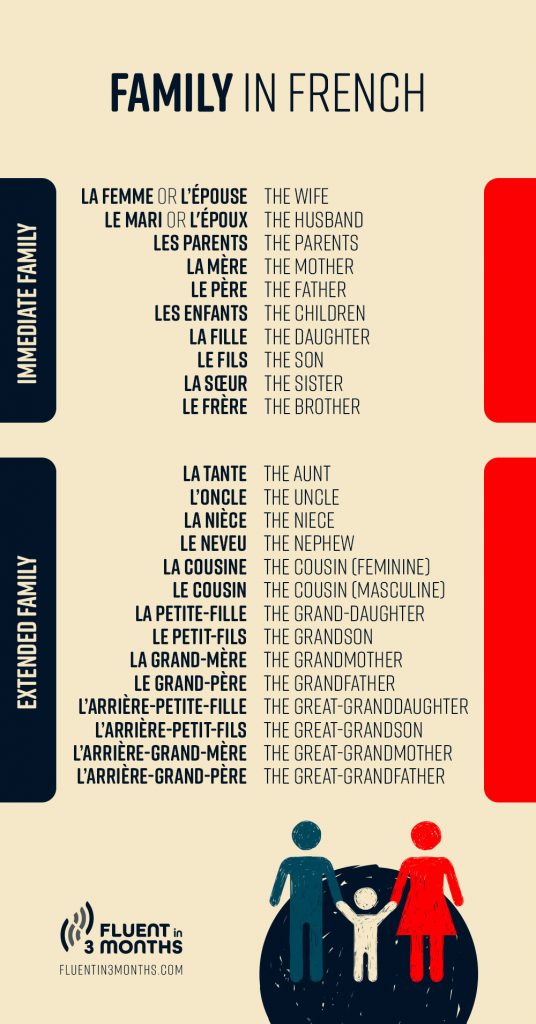
Step-family:
- la belle-mère – “the stepmother”
- le beau-père – “the stepfather”
- la demi-sœur – “the stepsister” or “the half-sister”
- le demi-frère – “the stepbrother” or “the half-brother”
- la belle-fille – “the stepdaughter”
- le beau-fils – “the stepson”
- la belle-mère – “the mother-in-law”
- le beau-père – “the father-in-law”
- la belle-sœur – “the sister-in-law”
- le beau-frère – “the brother-in-law
- la belle-fille – “the daughter-in-law”
- le beau-fils – “the son-in-law”
It might also be useful for you to learn the members of the “godparent family”:
- les parrains – “the godparents”
- la marraine – “the godmother”
- le parrain – “the godfather”
- la filleule – “the goddaughter”
- le filleul – “the godson”
How to Say “Family” in French: Famille
As I mentioned above, “Family” in French is famille .
Famille is a noun, so you will often see famille coming after an article or a pronoun.
The most common ones are:
- La famille – “(the) family”
- Une famille – “a family”
- Ma famille – “my family”
Let’s pause for a second and take a look at how similar famille is to “family”. These words are cognates : even though they’re from different languages, their spelling and pronunciation are similar, and they have the same meaning.
Cognates help you start learning a new language by giving you an instant vocabulary base. One of our favorite courses at Fi3M , French Uncovered , teaches you to recognise French cognates from the very start of yourjourney learning French. It’s a great way to feel more confident in your knowledge and less intimidated by your target language.
(Remember, at Fi3M we’re all about simple language hacks like this that help you learn a language faster 😉.)
The Different Types of Family in French
Once you’ve mastered how to say famille , you can go a little more in-depth and learn the different types of family categorization in French:
- la famille nucléaire or la famille traditionnelle – “immediate family”
- la famille monoparentale – “single-parent family”
- la famille recomposée – “stepfamily” or “reconstituted family”
- la famille élargie or la famille étendue – “extended family”
- la belle-famille – “in-laws”
- la famille adoptive – “adoptive family” or “foster family”
French follows rules of gender and number agreement. This means that if a noun is feminine, the article and adjective(s) that describe it will also be feminine. The same goes for when a noun is singular or plural. This is important to know if you want to describe your family members, for example.
Let’s look at how the agreement rules work.
While we’re looking at the plural forms of French family members, let’s talk about the collective terms for family members. These are words like “the parents” or “the siblings”, which describe the whole group of family members with the same titles, regardless of their gender.
Here are the most common:
- les parents – “the parents”
- all other terms with parents in them, such as les grandparents
- les enfants – “the children”
- all other terms with enfants in them, such as les petits-enfants
- les cousins – “the cousins”
For the other collective terms, you would mention the plural of both the masculine and femenine members. Here are some examples:
- les frères et sœurs – “the siblings”
- les oncles et tantes – “the uncles and aunts”
When you’re referring to several members of the same gender, for examples “the sisters”, you would use the plural of the term, so les sœurs .
When I’m speaking French with my parents, I don’t call my them * mère (“mother”) and père (father).
For parents, the most common terms used in French are:
- la maman – “the mom”
- le papa – “the dad”
There isn’t a collective term for parents other than parents in French, you would simply say maman et papa (“Mom and Dad”).
Grandparents too have their own terms of endearment:
- la mamie – “the granma”
- le papi (sometimes also spelt papy ) – “the grandpa”
You might also hear mémé (“grannie”) and pépé (“granda”), although they are more old fashioned words. My grandmother has never wanted her grandchildren to call her mémé ; she says it makes her sound too old!
For siblings, adding petit(e) or grand(e) does the work:
- petite sœur – “little sister”
- petit frère – “little brother”
- grande sœur – “big sister”
- grand frère – “big brother”
When it comes to the rest of the family, oncle has a more tender version: tonton (“uncle”). In some places, tante also has a sweeter version in tatie . In Guadeloupe, where I grew up, children use tatie as an affectionate term for women, even if they aren’t their aunts.
You’ve learnt the basics of French family vocabulary. Now are you ready for some more specific phrases?
Here are a few phrases you might want to know to talk or write about your family:
- J’ai une grande famille – “I have a big family.”
- J’aime ma famille – “I love my family.”
- La famille d’abord – “family comes first”
- La famille pour toujours – “family forever”
Depending on how deep you get into conversation about your family tree, you might want to know how to say just that. In French, “family tree” is arbre généalogique , which literally translates to “genealogical tree”.
French Cinema and Family – A Few Recommendations
French cinema likes to focus on family. Extended families, reconstituted families, adoptive families… All of them can be the foundation of great French comedy!
As promised at the beginning of the article, here are some of the most popular French films about family.
1. Qu’est-ce qu’on a fait au Bon Dieu ?

Qu’est-ce qu’on a fait au Bon Dieu ? , or “Serial (Bad) Weddings” in English, is a comedy that features an extended family.
Claude and Marie, a Catholic bourgeois couple from a small village in the north of France, see their conservative views challenged by the marriages of their daughters. The three eldest have married men of different ethnic origins and religious beliefs, so their hopes for a Catholic son-in-law rest with their youngest.
This movie and its sequel, which both star some famous French comedians, is a window into complex French modern culture.
2. C’est quoi cette famille?!
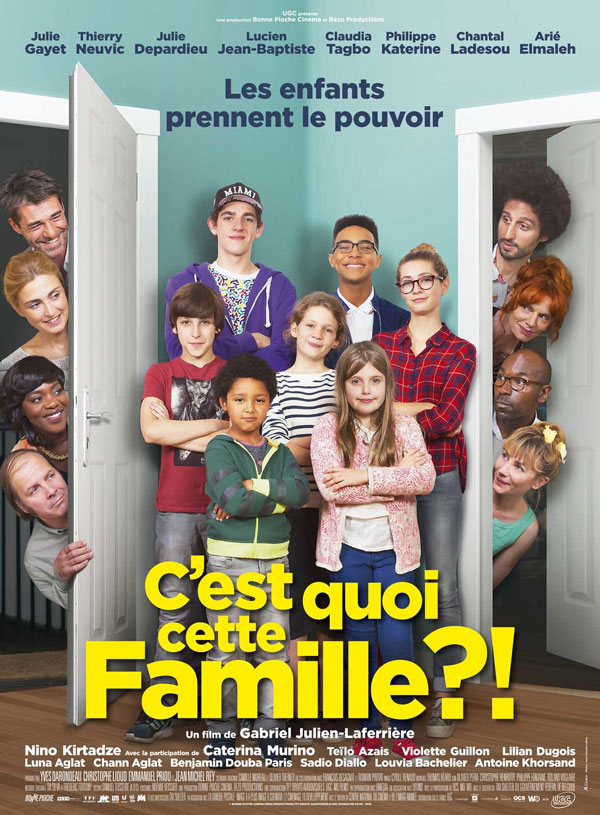
C’est quoi cette famille?! , or “We Are Family” in English, focuses on a reconstituted family.
After several marriages and divorces of both his parents, thirteen-year-old Bastien finds himself part of a very big reconstituted family. Tired of being moved from house to house for shared parenting, the many “half-siblings” decide to live together and have their parents move houses instead.
Even though this movie exaggerates for the sake of comedy, it taps into the reality of reconstituted families, which are very common in France.
3. Il a déjà tes yeux

Il a déjà tes yeux , “He Even Has Your Eyes” in English, is the story of a black couple who can’t have biological children and decide to adopt a baby. The baby is four-months-old, and white. Several people around the couple refuse to accept the adoption.
There is also a mini series whose events take place after the movie.
You can now shop at the père et fils business and listen to your B&B host’s story, and understand everything! Well, at least the part about the family.
If you’re looking for more vocabulary to learn, you could start by checking out this guide to 27 French colors (with audio).
If you’re ready for something else, try working on grammar! French pronouns are a good starting point.
Or maybe try some of these articles:
- How to Speak French: The Faster Way to Learn French
- FrenchPod101 Review: 30 Days with FrenchPod101
- 111 Core French Words — The Most Commonly Used Words in French
- An In-Depth Review of the Staircase Method — Learn a Language through Story
- 30+ Free Online French Classes and Resources (Only the Best!)
Alice Cimino
Student, Freelance Content Creator
Alice is an undergraduate student who loves fiction, languages, and challenges. She's a bilingual by birth and a quadrilingual by consequence .
Speaks: French, Italian, Spanish, English
Have a 15-minute conversation in your new language after 90 days

How to talk about family (la famille) in French
How do you say “family” in French? It’s a question that seems pretty simple, but as is the case with families in general, sometimes things can get a little complicated!
Let’s look at some common French family vocabulary and clear up some confusion about things like talking about family members in French and how to differentiate between step-family and in-laws.
How do you say “family” in French?
The French word for “family” is la famille . It’s a feminine word and can also be used to say “relatives” in some cases.
If you want to talk about your family specifically, you can say ma famille . The pronoun “ma” is used because famille is a feminine word .
Family members in French
- les parents – parents. This word can also be used to mean “relatives”, so pay attention to context.
- la mère – mother
- Maman – Mom/Mum
- le père – father
- Papa – Dad/Da
- l’enfant/les enfants – child/children
- le fils – son
- la fille – daughter
- l’époux/l’épouse – spouse
- La famille étendue / la famille élargie – extended family
- le frère – brother
- un frérot – an affectionate term for “brother”. Can also be slang for bro/bruv.
- un frangin – an affectionate term for brother.
- le demi-frère – half-brother (a brother who shares one biological parent with you)
- la sœur – sister
- une frangine – an affectionate term for sister
- la demi-sœur – half-sister (a sister who shares one biological parent with you)
Note that there is no single French word for “sibling” or “siblings”. You have to specify if you’re talking about a brother or sister, or you can say either mes fr è res, mes sœurs, or mes fr è res et soeurs.
The word la fratrie may also be used, but this is closer to “the children” in meaning.
Other immediate family members
- un tuteur/une tutrice – legal guardian
- un animal de compagnie/ un animal domestique – a pet
- le couple – the couple
- le mari – the husband
- la femme – the wife
- le/la fiancé(e) – fiancé
- le/la conjoint(e) – formal name for domestic partner
- le copain/la copine – boyfriend/girlfriend
Note that in many French families with children, the parents may not be married. In some cultures, this might be seen as controversial, but in France it’s not an issue .
Grandparents and grandchildren
- les grands-parents – grandparents
- la grand-mère – grandmother. Note that while this is a feminine word, grand doesn’t take an e at the end.
- Mamie – Grandma/Gran. As in English, there can be some exceptions and variants for this term, but this is the most common way for someone to address their grandmother in France. Ex: Salut Mamie, comment vas-tu aujourd’hui ? (Hi Grandma, how are you doing today?)
- le grand-père – grandfather
- Pépé/Papy – Grandpa/Granddad. As in English, there can be some exceptions and variants for this term, but these are the most common ways for someone to address their grandfather in France. Ex: On fait un petit tour en village, Papy ? (Shall we take a walk around the village, Granddad?)
- les petits-enfants – grandchildren
- le petit-fils -grandson
- la petite-fille – granddaughter
- les arrière-grands-parents – great-grandparents
- l’arrière-grand-père – great-grandfather
- l’arrière-grand-mère – great-grandmother
- les arrière-petits-enfants – great grandchildren
Aunts, uncles, cousins….
la tante – aunt. Note that this word is almost always preceded by an article or possessive pronoun. For instance, in English you might say, “Aunt Judy is coming over.” But in French, you’d more likely hear, La tante Judy vient chez nous or Ta tante Judy vient chez nous , not Tante on its own.
(une) tatie – aunt/auntie. This is an informal term of endearment for an aunt or great-aunt. It’s not used by everyone, but you will probably come across it. Note that unlike tante , this word isn’t always preceded by an article or possessive pronoun, and can be used to directly address one’s aunt. Ex: Tatie Simone, la tante Clara nous attend au cafe. (Auntie Simone, Aunt Clara is waiting for us at the cafe.)
l’oncle – uncle. Note that this word is almost always preceded by an article or possessive pronoun. For instance, in English you might say, “Uncle Charles is coming over.” But in French, you’d more likely hear, L’oncle Charles vient chez nous or Ton oncle Charles vient chez nous , not Oncle on its own.
(un) tonton – an informal, somewhat childish term for an uncle or a great-uncle, somewhere between “Uncle” and “Unky”. Note that unlike oncle , this word isn’t preceded by an article or possessive pronoun, and can be used to directly address one’s uncle. Ex: Voici mon oncle Pierre. Tonton Pierre, je te présente Sylvie, ma copine. (This is my uncle Pierre. Uncle Pierre, I’d like you to meet Sylvie, my girlfriend.)
le neveu – nephew
la nièce – niece
un cousin/une cousine – a cousin. As with some other words on this list, this word is usually preceded by an article or possessive pronoun. Ex: La Cousine Bette est un superbe livre écrit par Honoré de Balzac. ( Cousin Bette is an amazing book by Honoré de Balzac.)
Godparents and godchildren
- le parrain – godfather. Even if you’re not familiar with the Catholic practice of naming godparents (usually relatives or close family friends who would care for a child if their parents died – at least traditionally speaking), you’ve probably come across this word, since it’s the French title of the film The Godfather .
- la marraine – godmother. Fellow fairy tale fans, note that this word is not the same when you’re talking about a fairy godmother: that would be une bonne fée .
- le filleul – godson
- la filleule – goddaughter
Step-family and in-laws in French

You may wonder why these two categories of family members are grouped together. That’s because in French, both are said the same way:
- les beaux-parents – mother- and father -in-law OR stepparents
- la belle-mère – mother-in-law OR stepmother
- le beau-père – father-in-law OR stepfather
- le beau-frère – brother-in-law OR stepbrother
- la belle-sœur – sister-in-law OR stepsister
- le beau-fils – son-in-law OR stepson
- la belle-fille – daughter-in-law OR stepdaughter
- la belle-famille – in-laws or stepfamily. Note that it is far more common to hear this word used to mean “in-laws”, though.
Associating both of these kinds of family members with the word beau or belle (beautiful, lovely, handsome) probably came from the fact that the initial intention was to put them in a positive light…but it can lead to a lot of confusion.
For example, if I want to talk about my half-brother and my brother-in-law in the same sentence in French, I could say: Lors de mon dernier voyage aux États-Unis, j’ai vu mon beau-fr è re et mon beau-fr è re. (On my last trip to the US, I saw my stepbrother and my brother-in-law.)
Luckily, there are ways to avoid confusion, both as a speaker and a listener.
If you’re listening to someone else, try to pay attention to context. For instance, if the person talking is a child, it’s likely they mean “stepbrother”, since most of the time siblings are close enough in age that the child probably doesn’t have any married brothers or sisters. Of course, that’s not a total certainty.
If you’re reading a story, you can also use context. for instance, the wicked stepmother is a typical trope in fairy tales, so if you come across the word belle-m è re in a French fairy tale , it probably doesn’t mean “mother-in-law”.
On the other hand, in more contemporary storytelling, the difficult mother-in-law is a common trope, so if you watch a French sitcom or sketch comedy show and hear someone complaining about their belle-mère , that’s who they probably mean.
When you’re talking to a French person, the good news is that you can always ask for clarification – even simply by using intonation: For instance: – Mon beau-fr è re est un passionn é de veilles voitures. – Ton beau-frère ? – Oui, le mari de ma sœur. (“My beau-frère is a fan of old cars.” “Your beau-frère ?” “My sister’s husband.”)
Some people may even clarify in advance, the same as you might in English. It’s not uncommon to hear something like: Nous sommes partis en vacances avec mon fr è re et sa femme (We went on vacation with my brother and his wife) or La femme de mon fr è re travaille dans le IT. (My brother’s wife works in IT.)
There are a two words that only apply to stepfamily members or in-laws, though. These are:
un gendre – a very common word for son-in-law
une bru – a less common, somewhat old-fashioned term for “daughter-in-law”
How to address family members in French
As you can see from the list, in most cases, you have to use an article or possessive pronoun when talking about family members in a general way in French. Some family members can also be called by their title in lieu of their name.
For instance, although this would be considered formal or old-fashioned, a French person could directly address their mother as M è re or their grandfather as Grand-p è re . You could say this is the English equivalent of someone addressing their mom as “Mother” rather than “Mom” or “Mum”, and “Grandfather” rather than “Grandpa”, “Granddad”, and so on. (These family members are more typically directly addressed as Maman and Papy , respectively.)
The French family members that you can normally do this with are:
In addition, you may hear frère or soeur used either abstractly, as in poetry, or as a religious title for a monk or nun.
In most other cases, all other French family members’ titles would have to be used with an article or possessive pronoun.
That said, there are some exceptions. For instance, Scrooge McDuck (Picsou) is a very popular character in France. Picsou’s nephews often address him directly as Oncle Picsou .
Typically, though, when addressing a family member directly in French, you either omit their title or use a more affectionate one.
For example, my French husband used to call his uncle Tonton Yves when talking to him directly as a child. Now that he’s an adult, he just calls him by his first name, Yves.
On the other hand, when he speaks to his mom, he always calls her Maman . His grandmother is always addressed as Mamie , and he always called his great-aunt Tatie .
Keep in mind that this is just a general rule. Each family is different, and some may not even use typical or traditional family member titles in the first place, but rather nicknames or the like. You can think of this the way many people in English have fond nicknames for their grandparents – for example, instead of Granddad or Grandpa, they might say “Pop-Pop.”
The most important preposition for talking about family relationships in French

In English, we use the possessive form a lot when talking about family: My mother’s brother; My uncle’s cat; My sisters’ farm, etc.
The same goes for French, which means you’ll often see and use the preposition de when family is being described or discussed: le frère de ma mère ; le chat de mon oncle ; la ferme de mes sœurs , etc.
French family vocabulary
Here are some common family-related words and expressions you’ll come across in French.
la famille – the family. Note that this word can also have a more figurative meaning, or a scientific one or mathematical one. You can visit this helpful webpage to find a list of famille ’s many meanings .
la famille [nom] – the ___ family. Example: C’est une famille presque aussi bizarre que la famille Addams. (This family is nearly as bizarre as the Addams Family.)
Les [nom] – The ___s : Ex: Voici nos voisins, les Dupont. (Those are our neighbors, the Duponts.) Note that, unlike in English, while the article in French is plural, the family’s name stays singular.
en famille – among family OR “family” as an adjective. For example: Hier soir, on a dîné en famille. (Last night, we had a family dinner.)
un foyer – household
un ménage – household
une famille monoparentale – a single-parent family
une famille d’adoption – a found family (a group of friends who become like your family)
une famille d’accueil – a foster family. Note that this term can also sometimes be used to denote a host family, when dealing with exchange students, for instance.
une famille recomposée – a blended family (a family where the parents have remarried/gotten together and now there are step-parents, step-siblings, etc.)
un fils adopté/un fils adoptif/une fille adoptée/une fille adoptive – adopted son/adopted daughter. Ex: C’est le fils adoptif de mon oncle. (He’s my uncle’s adopted son.) Note that, as in English,there is nothing wrong with specifying that someone is adopted, in some contexts. But family is family and so it isn’t polite or normal or necessary to point out that someone is adopted in most situations.
avoir un air de famille (avec) – to have a family resemblance (with). Ex: Ça se voit que c’est ton cousin, vous avez un vrai air de famille ! (You can tell that you’re cousins; you two really have a strong family resemblance!)
C’est de famille. – It runs in the family.
You can find more family-related French words and expressions in this Wiktionnaire entry.
How can I learn about French family life?

If you’d like to learn more about family life in France, our list of statistics about France is a good place to start.
Once you’ve learned the basics, you can gain more insights by reading books in French and watching French movies and TV shows – after all, families of one kind or another are kind of ubiquitous.
An easy way to practice French family vocabulary is to describe your family, either written down on your own, or to online friends and conversation partners . You can also imagine a family and write about it in French!
We’re glad that you’re part of the French Together family, or at least that you’ve stopped by for a visit!
- What are the best French learning apps in 2024?
- The 16 best websites and apps for French conversation practice
- Duolingo French review: The good, the bad and the ugly
Alysa Salzberg
Alysa Salzberg is an American writer, worrier, teacher, and cookie enthusiast who has lived in Paris, France, for more than a decade. She has taught English and French for more than ten years, most notably as an assistante de langue vivante for L'Education Nationale. She recently published her first novel, Hearts at Dawn , a "Beauty and the Beast" retelling that takes place during the 1870 Siege of Paris. You can read about her adventures here , or feel free to stop by her website .

French Family Guide: Talking About Your Family in French

Your romance with a lovely French local has gained momentum and the time has come for one of the most terrifying milestones of ‘serious’ relationships: meeting your mother-in-law. Whether she’s a gatekeeper mom or just genuinely interested in her daughter’s “one and only,” chances are, you’ll be asked a lot of questions that will make you say: “Damn, how do I say mother in French? Or father or family in French?”
When meeting your parents-in-law, or any random person before a work meeting or over a beer, the trick is to find some common ground and get the other person to talk about something they can relate to. Hence, before you get to know a person and learn about your common interests, talking about their family or yours is a highly effective icebreaker.
Besides, have you ever noticed how often our relatives randomly pop into seemingly unrelated conversations? “My wife this,” “My mother that,” “My brother has the same thing,” and “My cousin has done that too!” As soon as you get comfortable with the vocabulary and the basic structures, it will unveil a whole lot of conversation opportunities and a wealth of follow-up questions to keep it going!
Learn how to describe family in French with FrenchPod101’s guide to family in French for beginners, and never lack the proper word again!
Table of Contents
- French Family Vocabulary: Complete Family Word List
- Beyond the Blood
- How to Talk About Family
- The French Family is Changing Rapidly
- How FrenchPod101 Can Help You Learn More French Vocabulary

1. French Family Vocabulary: Complete Family Word List
Before we get to talk about our family or inquire about somebody else’s, we’re gonna need some serious vocabulary! But don’t worry about the size of the list, just pick and remember whichever ones apply to your situation and the ones you’re typically going to ask about (siblings, kids?). You’ll learn the rest in due time as you continue talking about family in basic French.
1- The Inner Circle
Here are the most basic family members in French, the ones you’ll likely talk the most about.
/!\ Do not confuse mon parent , meaning “my relative,” and mes parents meaning “my parents.
Un parent meaning “a relative,” and des parents meaning “relatives,” both refer to relatives of any kind, while mes parents (possessive plural) means: “my parents” (in the sense of: mother and father).
- Je vais voir mes parents. “I’m going to see my parents.”
- J’ai des parents dans la région. “I have relatives in the region.”
- Comment vont ses parents ? “How are his parents doing?”
- Tu vis chez tes parents ? “Are you living with your parents?”
- Tu vis chez des parents ? “Are you living with relatives?”

Tel père, tel fils. (Like father, like son)
As you can see, there’s no specific word for “siblings” and we simply use “brothers and sisters.” For example, you could ask someone:
- Tu as des frères et soeurs ? “Do you have siblings?”
/!\ Be careful with the slang word gosses or “kids.”
In France, it’s very common and not overly familiar to use. However, in Canadian French, it has a completely different meaning and is vulgar slang for “testicles.” You can imagine how confusing these meanings could lead to some awkward misunderstandings.
2- French Extended Families
Extended family in French culture is important, so here are some words to help you start conversations about your loved ones outside your inner circle.
I’m talking about the one sending money on your birthday, not Marlon Brando.
Make sure to visit our vocabulary list about Family Members , with audio recordings to practice your pronunciation. It’s available for free on FrenchPod101 .
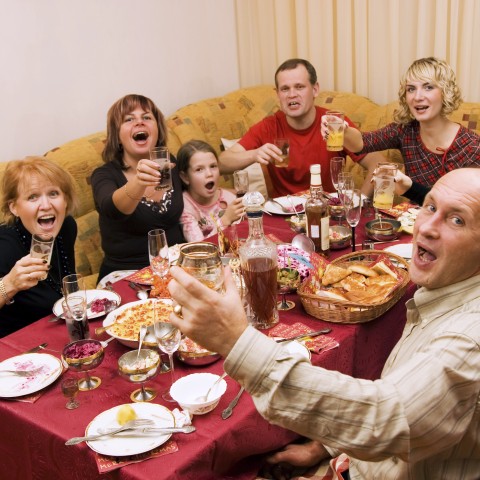
Famille nombreuse, famille heureuse. (Big Happy Family)
2. Beyond the Blood
Families extend beyond the people you share a blood relationship with. Let’s dive into the various types of these unrelated relatives.
Whether you’re in a relationship, engaged, married, single, divorced, separated, widowed, in a civil union, or in the type of situation Facebook describes as c’est compliqué (it’s complicated), talking about your marital status will often be useful.
Once you get married, you strap yourself to a whole bunch of “in-laws” that, with a bit of luck and a lot of work, might become as close as your own relatives.
Don’t you think that “beautiful mother” ( belle-mère ) or “handsome father” ( beau-père ) have a nicer ring to them than the legalish “mother-in-law” or “father-in-law?” As cheesy as it sounds, I feel like it helps to counter the negative association that many people have with the idea of having parents-in-law.
Meeting your “beautiful mother” ( Belle-mère – Mother-in-law)
3- Recomposed Family
Blended or reconstituted families (when the parents have children from previous relationships, but all the members come together under one roof) are increasingly common in France, and are slowly becoming the new normal. They bring unexpected stepfathers, stepbrothers, and usually a lot of complications to work through everyone’s differences. But it can also make broken families whole again and take a turn for the better.
/!\ Hold on! There’s something confusing here: does belle-mère stand for “mother-in-law” or “stepmother?” Both!
As inconvenient as it sounds, French uses the same set of words for parents-in-law and step-parents. But it’s not a problem, because it’s usually obvious from the context, right? Not always, and quite often, you’ll have to clarify who you’re talking about when referring to your “steps” or “in-laws.”
/!\ Wait…what about la demi-soeur ? Is it the “stepsister” or the “half-sister?” Both!
Demi literally means “half” and demi-soeur perfectly translates to “half-sister.” But then, we don’t have words for the step brothers & sisters, and it’s common to use demi-frère and demi-soeur , to make up for the lack of better words.
I personally use zéro-demi (or “zero-half” in English) to emphasize the difference, but there’s nothing official about it, and you won’t find it outside of this article!
3. How to Talk About Family

Now that we have a strong arsenal of new words at our disposal, let’s see how you can use them in a conversation. First, we’ll see how to talk about your marital status, then how to mention them in various ways, and finally how to ask questions and learn more about your friends’ families.
1- Your Marital Status
You could be asked about your marital status by friends or colleagues, for paperwork by any administrative office, or by a potential romantic interest on a date. Either way, no time to get it mixed-up!
Start with:
Je suis _______. “I am _______.”
And just pick from the list:
For example:
- Je suis marié. “I am married.” [Masculine]
- Je suis divorcée. “I am divorced.” [Feminine]
- Je suis célibataire. “I am single.” [Same for both genders.]
Most of these words are self-explanatory, but let’s talk about the civil union for a minute. The pacs or PACS ( Pacte Civil de Solidarité , or “Civil Solidarity Pact” in English) is, with the classic civil marriage, one of the two forms of civil union in France.
It was created in 1999, originally to give the same rights and legal protection to same-sex couples. Creating a new type of union instead of changing the traditional marriage was a clever way to not upset the conservative segment of the population, and it proved extremely successful.
Nowadays, the PACS is getting increasingly popular , especially for straight couples who find it more flexible and less bureaucratically heavy than getting married. They represent more than 95% of the total couples getting a PACS. Numbers are also showing that the PACS is slowly taking over traditional marriage.

Je suis mariée. (I am married.)
2- Questions and Answers About Family
With all the words that we’ve learned in the first part of this article, you’ll be able to talk about your family and ask the other person about their parents or brothers and sisters. Let’s have a look at the most common structures:
Est-ce que tu as _______ ? “Do you have _______?”
Tu as _______ ? “Do you have _______?”
- Tu as des frères ? “Do you have brothers?”
- Est-ce que tu as des cousins ? “Do you have cousins?”
- Tu as des enfants ? “Do you have children?”
You can answer with:
J’ai _______. “I have _______.”
- J’ai une soeur aînée. “I have an elder sister.”
- J’ai deux frères. “I have two brothers.”
- Je n’ai pas d’enfants. “I don’t have children.”
- J’ai trois mères. “I have three mothers.” This one is guaranteed to raise a lot of questions at a dinner party.
3- Talking About Family Members
There are many ways you could mention your relatives, and a number of things you may want to talk about, but here are a few examples to help you get the basic structures and elaborate from there:
- Mes parents habitent à Toulouse. “My parents are living in Toulouse.”
- Mes parents sont divorcés. “My parents are divorced.”
- Mon père est décédé l’an dernier. “My father died last year.”
- Ma grand-mère est Brésilienne. “My grandmother is Brazilian.”
- Mon grand-père est photographe. “My grandfather is a photographer.”
- Mes grand-parents vivent en Floride. “My grandparents live in Florida.”
- Ma soeur aînée a deux ans de plus que moi. “My elder sister is two years older than me.”
- Mon demi-frère a bientôt vingt ans. “My half-brother will be twenty soon.”
- Ma femme s’appelle Maurice. “My wife is called Maurice.”
Check out our Top 10 Quotes About Family on FrenchPod101 .
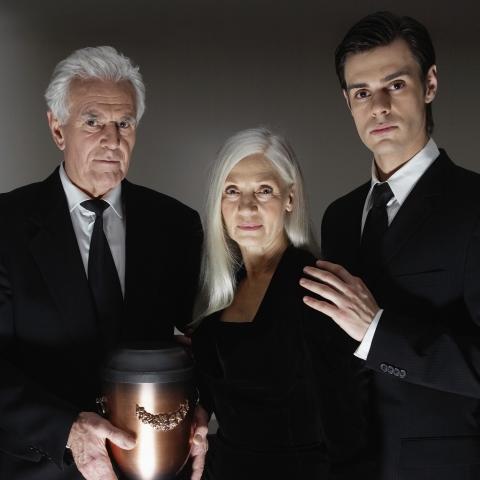
Mes parents habitent en Transylvanie. (My parents are living in Transylvania.)
4. The French Family is Changing Rapidly
Over the last few decades, the very concept of family in France has evolved, mutated, and broadened its definition. The family unit in French culture is now a mix of modernity and tradition, and while some are celebrating those changes, others are claiming that this once “sacred” institution got lured by progress and lost its way.
Before 1950, the French family was traditionally composed of two parents and often many children, as abortion remained illegal until 1975 . Couples were getting married young, often before their 20s, and didn’t divorce. The woman usually stayed home and was subject to the authority of her working husband.
Between 1950 and 2000, families began changing quickly. Divorces became increasingly frequent, as well as single-parent families. After WWII, women began emancipating, claiming more importance and freedom in and out of the household. More and more mothers started working, and the patriarchal system gave way to a more balanced separation of tasks and authority. French laws began evolving at the same time, reflecting these changes of mentalities.
After 1980, divorces and remarriage became commonplace, and three types of families were now frequently found all over France: “traditional” families, single-parent families (children raised by only one parent, usually the mother), and blended families (remarried partners living with children from former relationships).
Nowadays, the definition of the family has expanded a lot, thanks to the PACS (civil union) and the 2013 law on marriage and adoption for same-sex couples. 80% of women from 25 to 49 years old are working (even though income inequality remains an issue), and families are forming later in life.
The average age that mothers have their first child is around 30, and households rarely have more than one or two children . Children born outside of the traditional structure of a married couple are more and more frequent, with the rise of civil union or common-law union.
5. How FrenchPod101 Can Help You Learn More French Vocabulary

In this guide, you’ve learned a lot about how to talk about your family or ask about your friends’ relatives, from the giant word list to the most common questions and answers.
Did I forget any important words or expressions? Do you feel ready to get out there and reveal your most intimate family secrets, using everything you’ve learned today?
Make sure to explore FrenchPod101 , as it has plenty of free resources for you to practice your grammar and learn new words. Our vocabulary lists are also a great way to revisit the words in this article and learn their pronunciation.
Remember that you can also use our premium service, MyTeacher , to get personal one-on-one coaching. Practice talking about your family in French with your private teacher so they can give you personalized feedback and advice, and help you with your pronunciation.
About the Author: Born and bred in the rainy north of France, Cyril Danon has been bouncing off various jobs before he left everything behind to wander around the wonders of the World. Now, after quenching his wanderlust for the last few years, he’s eager to share his passion for languages.
Or sign up using Facebook
Got an account? Sign in here

How To Say ‘Thank you’ in French

How to Say “Hello” in French: Break the Ice Like a Pro!

How to Say I Love You in French – Romantic Word List

The French National Anthem: La Marseillaise

60 Classroom Phrases for Studying or Teaching in France

The Only Guide to French Restaurant Phrases You’ll Ever Need
How to celebrate april fools’ day in french.
- Forum Spotlight
- French Bazaar!!
- French Holidays
- French Language
- French Translation
- Scheduled Maintenance
- Guest Bloggers
- Advanced French
- French Grammar
- French Phrases
- French Podcasts
- French Words
- Tips & Techniques
- Media Coverage
- Feature Spotlight
- Success Stories
- Teaching French
- Team FrenchPod101
- Twitter Lessons
- Uncategorized
- Word of the Day
- Immigration, Visas
Copyright © 2024 Innovative Language Learning. All rights reserved. FrenchPod101.com Privacy Policy | Terms of Use . This site is protected by reCAPTCHA and the Google Privacy Policy and Terms of Service apply.

All The French Words You Need To Talk About Your Family

- Read time 12 mins

Do you know the words needed to identify members of your family in French? 👨👩👧👦
It’s clearly important, especially if someone asks you about your family and, for example, wants to know how old your frère is.
If you’ve found that talking about your family members once you’ve introduced yourself is a bit difficult because you don’t have the French vocabulary, this guide will help.
This guide will help you revise what you’ve covered in your French course .
How do you say family in French?
The word for “family” is la famille .
It’s a feminine noun, which you can tell by looking at the feminine article la .
To say “family members”, use the phrase les membres de la famille . It’s not too difficult to remember, since the word “members” is practically a cognate.
What does parent mean in French?
The French word parent has two meanings:
- It can refer to your “mother” or “father” and, in this sense, is used to refer to your “parents”. In this sense, it’s not difficult to remember because it’s the same in English.
- The word parent can also mean “relative”, and is used as a French adjective and a noun in this regard.
For example, you wanted to tell someone that you don’t have relatives in Canada, you could say:
Je n’ai pas de parents au Canada.
Alternatively, you could use parents as an adjective to describe how you are related to one of your family members.
In this sense, parents means “related”. Here’s an example of how to use it:
Nous ne sommes pas parentes.
Essential vocabulary for speaking about and identifying family in French
Now that we’ve covered some of the basics, let’s turn our attention to the essential vocabulary needed to speak about and identify family in French.
I’ve split this section into immediate and wider members of the family in French.
Vocabulary to speak about immediate family in French
Here are some of the vocabulary you can use to speak about your immediate family in French.
Which of these do you know?
Use mère when you want to say “mother” in French. This feminine French noun can be used to talk about your female parent.
Usage example:
Ma mère aime cuisiner des plats italiens.
Use père when you want to say “father” in French. This masculine French noun can be used to identify and speak about your male parent.
Mon père aime réparer les ordinateurs et créer des logiciels.
Les parents can be used to talk about both your mother and father in French. This phrase is a cognate, so you’ll have less trouble remembering it.
Mes parents se sont rencontrés à l’université. Ils ont tous deux étudié la littérature française.
Sœur is a feminine French noun that translates to English as “sister”. Use it when you want to identify your female sibling in French.
Ma sœur aime lire des livres et regarder des films espagnols.
Frère is the French noun for “brother”. If you’re describing your male sibling, who has the same parents as you, use frère to identify them.
Est-ce que ton frère aime le football ?
Frères et sœurs
The French word for “siblings” is frères et sœurs . This phrase literally translates to “brothers and sisters” in English.
Les frères et sœurs de Louisa se disputent toujours à propos des programmes télévisés qu’ils regardent.
Combining the words “grand” and “mère”, meaning “grand” and “mother” in English, this French noun means “grandmother”. If you’re refering to your father’s mother, or your mother’s mother, use grand-mère .
Sophie avait l’habitude d’aller à l’église avec sa grand-mère tous les week-ends.
This French noun combines the words “grand” and “père”, which mean “grand” and “father. It means “grandfather” in English and can be used to refer to your mother’s father, or your father’s father.
Sophie demandait des chocolats à son grand-père tous les samedis.
Grands-parents
Combining the words “grands” and “parents” this French noun means “grandparents”. You can use it to speak about the parents of your parents.
Leurs grands-parents sont nés en 1920.
Femme means “wife” in French. It can be used to refer to a married woman in a spousal relationship with her husband.
Sa femme voulait divorcer mais a décidé de réessayer.
Mari means “husband” in French. Use it to refer to a married man in a spousal relationship with his wife.
Son mari l’aimait beaucoup mais ne voulait pas d’enfant.
Use fille when you want to talk about a “daughter” or someone’s daughter. Note the difference between enfant and fille . Use fille to talk about a daughter of any age, and enfant when talking about a child.
Notre fille étudie la langue espagnole. Elle veut aller au Pérou.
Fils means “son” in English. Use this French noun to identify someone’s son in French.
Notre fils étudie la langue italienne. Il veut aller en Italie.
Enfants , which is similar to the partial cognate “infants”, means children in English. Use this French noun when referring to more than one child.
Nos enfants aiment jouer aux jeux vidéo. Ils ne font pas de sport.
Petite fille
Petite fille means “granddaughter” in English. Use this French noun to refer to the daughter of your daughter or the daughter of your son.
Ma petite-fille me ressemble. Elle a la même couleur de cheveux.
Petit fils translates to English as “grandson”. This French noun can be used to refer to the son of your daughter or the son of your son.
Mon petit-fils ressemble à son père. Leur nez et la forme de leurs yeux sont identiques.
Petits enfants
Use petits enfants as the plural form of petit enfant to identify or talk about several “grandchildren” in the French language.
Tous ses petits-enfants sont gentils les uns avec les autres. Ils sont polis et respectueux.
Vocabulary to speak about wider family in French
Let’s now focus on the vocabulary you can use to speak about your extended family in French. Which ones do you recognise? Which ones do you need to revise?
Tante means “aunt” in English. Use this to refer to the sister of your mother, the sister of your brother, or your uncle’s wife.
Ma tante fait des gâteaux le week-end et les partage avec nous.
Use oncle to refer to your “uncle” in French. This is a sort of cognate that makes oncle simpler to remember.
Mon oncle nous aide à installer des logiciels sur nos ordinateurs.
Grand-tante
A grand-tante , which combines the words grand and tante , is your “great-aunt” or “great-aunty” in English. Keep in mind that this French noun contains the word tante , meaning aunt, which will help you to remember this one.
Sa grand-tante est décédée la semaine dernière. Il était très triste.
Grand-oncle
Grand-oncle means “great-uncle” in English. Try to remember that oncle means “uncle”, which will help you remember this family member more easily.
Ma grand-oncle est toujours en vie. Il a cent deux ans.
Cousine is a French noun that means “female cousin”. Use this to refer to the daughter of your aunt or uncle.
Ma cousine a le même âge que moi. Nous avons tous les deux trente et un ans.
Just like the Spanish family members , “cousin” has a masculine and feminine word. Cousin is a masculine French noun that means “male cousin”. Use this noun to refer to the son of your aunt or uncle.
Mon cousin est plus âgé que moi. Nous aimons tous les deux patiner et manger du chocolat.
Cousins is the plural form of the French noun cousin . Use it to refer to several cousins – that is the sons and daughters of your aunts and uncles.
Tous mes cousins aiment chanter et danser. Je n’aime pas ça.
This cognate, though pronounced differently in French, means “niece” in English. Use this noun to refer to the female child of your brother or sister. Your nièce can also be the daughter of your brother- or sister-in-law.
Je suis allé à l’hôpital quand ma nièce est née. Elle était petite, mais ne pleurait pas beaucoup.
A neveu is your “nephew”. Use this French noun to talk about the male son of your brother or your sister. Your neveu can also be the son of your brother- or sister-in-law.
Mon neveu est très méchant. Mais il est aussi très drôle.
Belle-mère means “stepmother”. You can use this French noun to talk about a female partner of your father, where the female partner is not your biological mother and has married your father after divorce or separation.
Je ne connais pas très bien ma belle-mère, mais elle a l’air très gentille.
Beau-père means “stepfather”. Use this French noun to refer to the male partner of your mother, where the male partner is not your biological father, or has married your mother after separation.
Je connais très bien mon beau-père. Il est très sérieux mais très gentil.

Belle fille
Use belle fille to refer to your “daughter-in-law” when speaking in French.
J’aime ma belle-fille comme si elle était mon propre enfant.
Use beau fils to refer to your “son-in-law” when speaking in French.
Mon beau-fils est très intelligent et aimant.
Containing the words demi (meaning “half”) and sœur (meaning “sister”) demi-sœur means “half-sister” or “step sister”.
Ma demi-sœur vit au Canada. Je ne l’ai jamais rencontrée.
Containing the words demi (meaning “half”) and frère (meaning “brother”) demi-frère means “half-brother” or “step brother”.
Mon demi-frère vit en Côte d’Ivoire. Je lui ai rendu visite l’année dernière.
Use marraine to refer to your godmother in French.
Ma marraine s’occupe de moi quand je ne vais pas bien.
Use parrain to refer to your godfather in French.
Mon parrain m’a appris à attraper un ballon de rugby.
Your goddaughter is your filleule in French.
Sa filleule n’a jamais réalisé qu’elle n’était pas sa mère biologique.
Your godson is your filleul in French.
Mon filleul est un garçon heureux et énergique.
Belle-sœur means “sister-in-law” in French. Use this French noun to refer to the daughter of your stepmother or stepfather.
Je suis tellement contente d’avoir une belle-sœur. Mon frère était très ennuyeux.
Beau-frère means “brother-in-law” in French. Use this French noun to refer to the son of your stepmother or stepfather.
Mon beau-frère n’arrête pas de parler. Il parle de choses ennuyeuses.
Speak about family in French and ask others about theirs
If you’re in a country where French is spoken , being able to talk about your family members is important. It’s crucial that you learn the right French words to describe your family.
Looking at the list, it might seem daunting.
But practising a little bit each day, and memorising these nouns will give you more confidence when chatting about your relatives.
Any other French family members I missed?
Comment below.
🎓 Cite article
Learning French ?
French Resources:
Let me help you learn french join the guild:.
Donovan Nagel - B. Th, MA AppLing
- Affiliate Disclaimer
- Privacy Policy
- About The Mezzofanti Guild
- About Donovan Nagel
- Essential Language Tools
- Language Calculator
SOCIAL MEDIA
Current mission.

Let Me Help You Learn French
- Get my exclusive French content delivered straight to your inbox.
- Learn about the best French language resources that I've personally test-driven.
- Get insider tips for learning French.
Don’t fill this out if you're human:
No spam. Ever.
You are using an outdated browser. Please upgrade your browser or activate Google Chrome Frame to improve your experience.
How to Write an Essay in French
Have something to say?
When it comes to expressing your thoughts in French , there’s nothing better than the essay.
It is, after all, the favorite form of such famed French thinkers as Montaigne, Chateaubriand, Houellebecq and Simone de Beauvoir.
In this post, I’ve outlined the four most common types of essays in French, ranked from easiest to most difficult, to help you get to know this concept better.
Why Are French Essays Different?
Must-have french phrases for writing essays, 4 types of french essays and how to write them, 1. text summary (synthèse de texte).
- 2. Text Commentary (Commentaire de texte)
3. Dialectic Dissertation (Thèse, Antithèse, Synthèse)
- 4. Progressive Dissertation (Plan progressif)
And one more thing...
Download: This blog post is available as a convenient and portable PDF that you can take anywhere. Click here to get a copy. (Download)
Writing an essay in French is not the same as those typical 5-paragraph essays you’ve probably written in English.
In fact, there’s a whole other logic that has to be used to ensure that your essay meets French format standards and structure. It’s not merely writing your ideas in another language .
And that’s because the French use Cartesian logic (also known as Cartesian doubt) , developed by René Descartes , which requires a writer to begin with what is known and then lead the reader through to the logical conclusion: a paragraph that contains the thesis. Through the essay, the writer will reject all that is not certain or all that is subjective in his or her quest to find the objective truth.
Sound intriguing? Read on for more!
Before we get to the four main types of essays, here are a few French phrases that will be especially helpful as you delve into essay-writing in French:
Introductory phrases , which help you present new ideas.
Connecting phrases , which help you connect ideas and sections.
Contrasting phrases , which help you juxtapose two ideas.
Concluding phrases , which help you to introduce your conclusion.
FluentU takes authentic videos—like music videos, movie trailers, news and inspiring talks—and turns them into personalized language learning lessons.
You can try FluentU for free for 2 weeks. Check out the website or download the iOS app or Android app.
P.S. Click here to take advantage of our current sale! (Expires at the end of this month.)

Try FluentU for FREE!
The text summary or synthèse de texte is one of the easiest French writing exercises to get a handle on. It essentially involves reading a text and then summarizing it in an established number of words, while repeating no phrases that are in the original text. No analysis is called for.
A synthèse de texte should follow the same format as the text that is being synthesized. The arguments should be presented in the same way, and no major element of the original text should be left out of the synthèse.
Here is an informative post about writing a synthèse de texte , written for French speakers.
The text summary is a great exercise for exploring the following French language elements:
- Synonyms , as you will need to find other words to describe what is said in the original text.
- Nominalization , which involves turning verbs into nouns and generally cuts down on word count.
- Vocabulary , as the knowledge of more exact terms will allow you to avoid periphrases and cut down on word count.
While beginners may wish to work with only one text, advanced learners can synthesize as many as three texts in one text summary.
Since a text summary is simple in its essence, it’s a great writing exercise that can accompany you through your entire learning process.
2. Text Commentary (Commentaire de texte)
A text commentary or commentaire de texte is the first writing exercise where the student is asked to present an analysis of the materials at hand, not just a summary.
That said, a commentaire de texte is not a reaction piece. It involves a very delicate balance of summary and opinion, the latter of which must be presented as impersonally as possible. This can be done either by using the third person (on) or the general first person plural (nous) . The singular first person (je) should never be used in a commentaire de texte.
A commentaire de texte should be written in three parts:
- An introduction , where the text is presented.
- An argument , where the text is analyzed.
- A conclusion , where the analysis is summarized and elevated.
Here is a handy in-depth guide to writing a successful commentaire de texte, written for French speakers.
Unlike with the synthesis, you will not be able to address all elements of a text in a commentary. You should not summarize the text in a commentary, at least not for the sake of summarizing. Every element of the text that you speak about in your commentary must be analyzed.
To successfully analyze a text, you will need to brush up on your figurative language. Here are some great resources to get you started:
- Here’s an introduction to figurative language in French.
- This guide to figurative language presents the different elements in useful categories.
- This guide , intended for high school students preparing for the BAC—the exam all French high school students take, which they’re required to pass to go to university—is great for seeing examples of how to integrate figurative language into your commentaries.
- Speaking of which, here’s an example of a corrected commentary from the BAC, which will help you not only include figurative language but get a head start on writing your own commentaries.
The French answer to the 5-paragraph essay is known as the dissertation . Like the American 5-paragraph essay, it has an introduction, body paragraphs and a conclusion. The stream of logic, however, is distinct.
There are actually two kinds of dissertation, each of which has its own rules.
The first form of dissertation is the dialectic dissertation , better known as thèse, antithèse, synthèse . In this form, there are actually only two body paragraphs. After the introduction, a thesis is posited. Following the thesis, its opposite, the antithesis, is explored (and hopefully, debunked). The final paragraph, what we know as the conclusion, is the synthesis , which addresses the strengths of the thesis, the strengths and weaknesses of the antithesis, and concludes with the reasons why the original thesis is correct.
For example, imagine that the question was, “Are computers useful to the development of the human brain?” You could begin with a section showing the ways in which computers are useful for the progression of our common intelligence—doing long calculations, creating in-depth models, etc.
Then you would delve into the problems that computers pose to human intelligence, citing examples of the ways in which spelling proficiency has decreased since the invention of spell check, for example. Finally, you would synthesize this information and conclude that the “pro” outweighs the “con.”
The key to success with this format is developing an outline before writing. The thesis must be established, with examples, and the antithesis must be supported as well. When all of the information has been organized in the outline, the writing can begin, supported by the tools you have learned from your mastery of the synthesis and commentary.
Here are a few tools to help you get writing:
- Here’s a great guide to writing a dialectic dissertation .
- Here’s an example of a plan for a dialectic dissertation , showing you the three parts of the essay as well as things to consider when writing a dialectic dissertation.
4. Progressive Dissertation ( Plan progressif)
The progressive dissertation is slightly less common, but no less useful, than the first form.
The progressive form basically consists of examining an idea via multiple points of view—a sort of deepening of the understanding of the notion, starting with a superficial perspective and ending with a deep and profound analysis.
If the dialectic dissertation is like a scale, weighing pros and cons of an idea, the progressive dissertation is like peeling an onion, uncovering more and more layers as you get to the deeper crux of the idea.
Concretely, this means that you will generally follow this layout:
- A first, elementary exploration of the idea.
- A second, more philosophical exploration of the idea.
- A third, more transcendent exploration of the idea.
This format for the dissertation is more commonly used for essays that are written in response to a philosophical question, for example, “What is a person?” or “What is justice?”
Let’s say the question was, “What is war?” In the first part, you would explore dictionary definitions—a basic idea of war, i.e. an armed conflict between two parties, usually nations. You could give examples that back up this definition, and you could narrow down the definition of the subject as much as needed. For example, you might want to make mention that not all conflicts are wars, or you might want to explore whether the “War on Terror” is a war.
In the second part, you would explore a more philosophical look at the topic, using a definition that you provide. You first explain how you plan to analyze the subject, and then you do so. In French, this is known as poser une problématique (establishing a thesis question), and it usually is done by first writing out a question and then exploring it using examples: “Is war a reflection of the base predilection of humans for violence?”
In the third part, you will take a step back and explore this question from a distance, taking the time to construct a natural conclusion and answer for the question.
This form may not be as useful in as many cases as the first type of essay, but it’s a good form to learn, particularly for those interested in philosophy. Here’s an in-depth guide to writing a progressive dissertation.
As you progress in French and become more and more comfortable with writing, try your hand at each of these types of writing exercises, and even with other forms of the dissertation . You’ll soon be a pro at everything from a synthèse de texte to a dissertation!
FluentU has a wide variety of great content, like interviews, documentary excerpts and web series, as you can see here:

FluentU brings native French videos with reach. With interactive captions, you can tap on any word to see an image, definition and useful examples.

For example, if you tap on the word "crois," you'll see this:

Practice and reinforce all the vocabulary you've learned in a given video with learn mode. Swipe left or right to see more examples for the word you’re learning, and play the mini-games found in our dynamic flashcards, like "fill in the blank."

All throughout, FluentU tracks the vocabulary that you’re learning and uses this information to give you a totally personalized experience. It gives you extra practice with difficult words—and reminds you when it’s time to review what you’ve learned.
Start using the FluentU website on your computer or tablet or, better yet, download the FluentU app from the iTunes or Google Play store. Click here to take advantage of our current sale! (Expires at the end of this month.)
Enter your e-mail address to get your free PDF!
We hate SPAM and promise to keep your email address safe


Learn the vocabulary needed to describe, “Ma famille”, you will find a reading of family members in French with their corresponding translation in English. Here you will learn how to say brother and sister, friends, etc, in French.
Enjoy the reading about : Ma famille.
Reading : My family
Short video: the family.
VIDEO QUIZ Now watch the video and answer the following questions :
Practice more about the family: review more vocabulary, try a dictation, listen to the reading and enjoy the conversation:, more french readings practice here:.

Explore More French Reading Levels: Click on the level of your interest:
- Readings Level 1
- Readings Level 2
- Readings Level 3
- Readings Level 4
- Readings Level 5
- Readings Level 6
- Readings Level 7
- Readings Level 8
French Resources for Level 1:

Do you want to practice another Resource? Click on the image of your interest:

French Family Culture and Vocabulary
- Everything About
- The alphabet
- Funny phrases
- Common words
- Untranslateable Words
- Reading Hacks
- Writing Tips
- Pronunciation
- Telling time
- Learn FASTER
- More resources
By OptiLingo • 5 minute read

What Role Does Family Play in French Society?
The French value family above all else. They cherish these close relationships and it’s an important part of French culture. But, you should know more than just the French vocabulary for family members. You should also know what a typical French family is like. The family life culture is an important aspect of modern France, and being familiar with it is extremely useful as you’re progressing towards French fluency .

Psst! Did you know we have a language learning app?
- It teaches you useful words and phrases.
- Presented in a natural, everyday context.
- Spaced out over time, so you absorb your new language organically.
- It’s kind of like learning the words to your new favorite song!
You’re only one click away!
French Family Vocabulary
Having a well-rounded vocabulary is crucial to French fluency. However, don’t worry about how many words you know . Reaching proficiency in a foreign language is about knowing the right vocabulary . To start your discovery of French family dynamics, here are the most useful French family vocabulary words you should know:
Close Family
- ma famille – my family
- les parents – parents
- le mari – husband
- la femme – woman / wife
- le père – father
- le papa – dad / papa
- la mère – mother
- la maman – mom / mama
- la fille – daughter
- le fils – son
- la sœur – sister
- le frère – brother
- le demi-frère – half-brother
- la demi-sœur – half-sister
Grandparents
- le grand-père – grandfather
- le papi / le pépé – grandpa / grandad
- la grand-mère – grandmother
- la mamie / la mémé – grandma / granny
- les grands-parents – grandparents
- le petit-fils – grandson
- la petite-fille – grand daughter
- les petits-enfants – grandchildren
- l’oncle – uncle
- la tante – aunt
- le neveu / les neveux – nephew / nephews
- la nièce / les nièces – niece / neices
- le cousin / la cousine – cousin (male) / cousin (female)
- le beau-père – father-in-law
- la belle-mère – mother-in-law
- le beau-fils – son-in-law
- la belle-fille – daughter-in-law
Extra Terms
- l’aîné(e) – oldest, eldest
- le / la cadet(te) – youngest / younger
- les gosses – kids
- l’enfant – child
- le parrain – godfather
- la marraine – godmother
French Family Culture in French Society
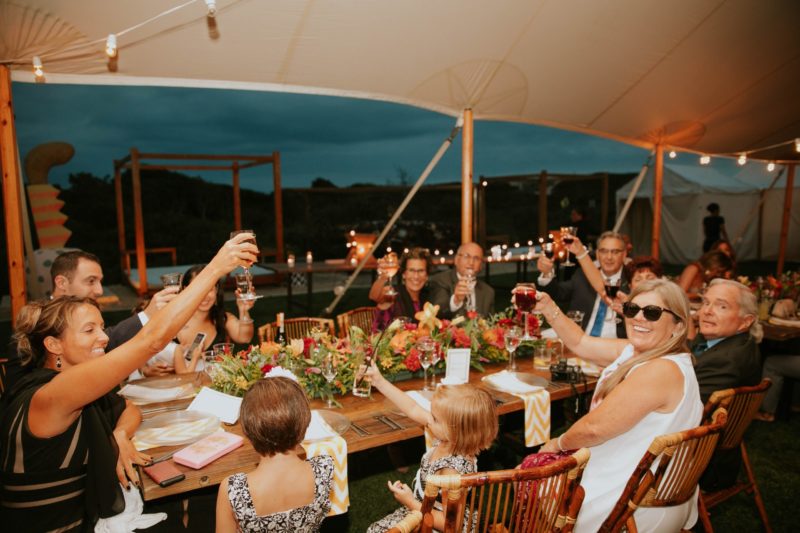
French views on the family are rooted in a sense of family identity and society. This is in stark contrast to the English and American emphasis on individuality. In English-speaking communities, families encourage self-expression. Each person is unique, but the family construct remains the same.
However, in France, it’s a different value system. Families are tight-knit groups. Individualism isn’t encouraged. Instead, the French family bond defines everyone. And you can see the effect of this attitude throughout France.
The relationships between members of French families remain close. Even after their children become adults. Adult sons and daughters generally stay close to the family home. And it’s common for them to dine with their parents weekly and call them daily.
France Values Children as the Future

Raising a family in France is different than raising one in America. French parents, particularly in the middle class, take a stricter role than American parents. And the amount of freedom of movement that American children enjoy is not common in France.
French parents do not indulge children, either. They enforce the order by teaching their kids when to speak and listen. If a French child acts poorly, it reflects on the family. As a result, French parents teach their children that certain behaviors are unacceptable.
This approach to raising a family in France has stood the test of time even though there have been changes in society. These changes include an increase in single-parent homes, children born out of wedlock, and more women participating in the workforce. Despite these changes, the underlying view on how to raise children remains the same.
One issue that has become a concern is the idea that there are two societies in France. They are the “haves” and the “have nots.” Youth in France grow disaffected by a society that does not offer them the economic opportunities their parents had.
The 1995 film La Haine highlighted this problem and serves as a warning to the French society. It argues that there are problems that need to be addressed. Regular bursts of violence in the “banlieues” (suburbs) show that those problems are still acute.
French Family as a Lasting Foundation for Society

French people value equality in marriage. Despite the stereotype of the dominant French husband and the submissive French wife. In fact, husband and wife in French families hold equal responsibilities.
France also values equal marriage rights. Same-sex marriage has been legal in France since 2013 . This progressive step has inspired other countries in Europe to reevaluate their marriage laws.
French families tend to stay more closely connected to their relatives than they do in the United States or in England. While this is not always the case, American families tend to be scattered throughout the country. Not a lot of thought is given to keeping everyone physically close. French families live in the same area, developing large numbers of contacts and people who can rely on each other for support.
This structured environment and this sense of order and rigidity are not universal. There are individuals and families who do not live close to relatives and who do not adhere to the generally accepted views on parenting in France. But, these people are exceptions to the common traits found in most French families.
Reach French Fluency Fast
Although generalizing French families is hard, there’s one thing they all have in common: they all speak French. And if you want to truly experience French family life, you need to learn the language too. To reach fluency fast , use OptiLingo.
This language learning app is built on scientifically-proven language learning theories. Combining comprehensible input and spaced repetition , you will not only understand your lessons well, you’ll also commit them to memory. OptiLingo presents high-frequency phrases, so you’ll instantly learn how the locals speak . Discover how much easier learning French is with OptiLingo. Try FREE today !
Related posts

How to Count in French – Master French Numbers

14 Incredible Facts About the French Language

14 Best French YouTubers and Vloggers
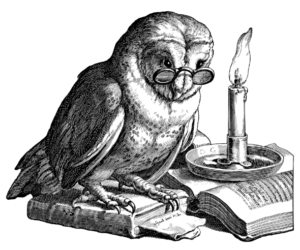
10 Famous French Sayings and Proverbs
Many people believe they aren’t capable of learning a language. we believe that if you already know one language, there’s no reason you can’t learn another..

Frenchlanguagebasics 🇫🇷
Learn French the fast and easy way!
Useful phrases in French: Talking about your family
Talking about your family is a great way to connect with others and share information about yourself in French. Whether you’re meeting new people or practicing your language skills, knowing some basic French phrases can help you express yourself and communicate more effectively.
In this lesson, we’ll go over some useful French phrases that will come in handy when talking about your family.
“Je suis marié(e)” – “I am married” Use this phrase to inform someone that you are married. If you’re not married, you can say “Je suis célibataire” to indicate that you’re single.
“J’ai des enfants” – “I have children” This phrase is useful when you want to mention your children. You can provide more details by following up with their names, ages, and other information.
“J’ai un frère/une sœur” – “I have a brother/sister” If you have siblings, this phrase is a great way to mention them. You can also use “J’ai des frères/soeurs” to indicate that you have more than one sibling.
“Mes parents habitent à…” – “My parents live in…” If you want to mention where your parents live, this phrase is a great way to do it. You can follow up with the name of the city, town, or country where they reside.
“Nous sommes une famille de…” – “We are a family of…” If you want to mention the size of your family, this phrase is a great way to do it. You can follow up with the number of people in your family, such as “Nous sommes une famille de quatre” (We are a family of four).
“Comment vont tes enfants/ta famille ?” – “How are your children/your family?” This is a great question to ask someone when you want to show an interest in their family. It’s a friendly and polite way to start a conversation about family.
“Je vais rendre visite à ma famille” – “I’m going to visit my family” If you’re making plans to visit your family, this phrase is a great way to let someone know. You can provide more information by following up with the dates of your trip and other details.
By learning these useful French phrases for talking about your family, you can engage in conversation with others, share information about yourself, and learn more about the people around you.
Be sure to practice these phrases so that you can communicate confidently and effectively when talking about your family in French.
Leave a Comment Cancel reply
Save my name, email, and website in this browser for the next time I comment.
Privacy Overview
- Scoilnet.ie
- Follow us on Twitter
When studying French you need to be able to talk about your family and home. How many brothers and sisters you have, where you live and the things you do.
Cool French - Family
Archived site - Family vocabulary with a little difference. Includes slang words and some that are a little vulgar.
How it maps to the curriculum
Strand: Vocabulary
Strand unit: Family
Suggestions for use: Could be introduced to a class for some light relief.
Detailed alphabetical information about the origins of first names as well as listings for patron saints of various professions and trades. Very good for the origins of the name 'Patrick'. Navigation is a little different.
Strand: Reading
Suggestions for use: Get the class to explore their own first name. Get them to explain orally or in writing the origin of their name and the feast day associated with it.
Une famille pauvre
News article about a poor family in Paris and how the mother manages to make ends meet. Gives good awareness of the poverty issue in France. Ideal for Junior Cert reading comprehensions.
Strand: Topics
Strand unit: Poverty
Suggestions for use: This article would be best used as a reading comprehension with questions in English. Ask the students to write all the numbers in letters for a little revision.
La Famille - Dialogue
Role plays asking people about their family. Listening section available. Full grammar explanations; a little heavy for Junior Cycle.
Strand: Speaking
Suggestions for use: Practise these questions and answers in class with partner. Make up new answers to suit self.
Furniture for Each Room
Listen to the furniture mentioned and drag and drop the items to the correct room. Colourful, fun site which beginners will enjoy.
Strand unit: House
Suggestions for use: Could be used as a test, having already learnt the rooms and furniture vocabulary.
Description personnelle - flashcards
Set of 50 flashcards with vocabulary to describe oneself. Includes articles for the names & sound. Links to practise the vocab with exercises or games. Good resource for all senior cycle students.
Strand unit: Personal Details
Suggestions for use: - ideal resource to let students work on their own at home or in the computer lab - ask them to try the games & tests & keep a record of their results to see how they improve - work on pronuncia
Activité écrite et orale - la famille
This pdf offers several ideas for activities about family, including speaking. Great to revise the topic with TYs but oral activities would be good practise for older students in view of the LC oral exam.
Suggestions for use: - pick activities depending on the level of students (more oral work for older students) - ask students to work in pairs to remove some of the pressure of having to talk in French - some ora
Les Déscriptions Physique
Set of three activities - unscrambling words that describe people; writing a description of yourself; describing a famous person.
Suggestions for use: Print out and do. Useful activity after a series of classes on describing myself and my family.
Cloze-test layout with list of possible answers available. Works on comprehension of family member names. Very useful for 1st years.
Suggestions for use: Learner could draw and label own family tree using vocabulary provided. Learner could develop oral or written description of own family mentioning each persons name and age. A new, similar exercise

Without housing, we were out of options. COVID quarantine offered my family a path forward.
The writer of this essay is a 2023-24 Student Voices Fellow at Chalkbeat. Click to learn more about our high school fellowship program.
Content warning: This essay contains references to thoughts of suicide.
As the winter breeze blew through my braids, I felt a surge of excitement. Back then, good news was hard to come by so I was eager to share some with my mom. A smile spread from ear to ear as I rushed toward a white Honda parked across the street from my school, imagining her reaction.
But the usual sensation of love and security that I felt in my mom’s presence seemed to diminish with each step that I took. My mom didn’t trust me crossing the street, so she would usually park closer. This time, she didn’t roll down her window and call out to me with familiar laughs and friendly jokes. Something was wrong. A brewing surprise awaited me in that car. I hate surprises.
I hesitated for a moment before opening the car door. When I did, my heart sank when I saw who was driving. As I settled into the back seat, I wasn’t met with the typical “How was your day?” but instead with a chilling silence. Every slight noise — the hum of the car engine, the shuffling of my burgundy coat, my heart pounding — seemed magnified.
I recall having to swallow what felt like a brick to playfully ask, “Can we go home?”
“You have no home,” my mom’s partner said, turning around from the driver’s seat to look at me. He taunted me. I begged and pleaded to go home as tears fell from my eyes. He laughed and repeatedly said, “You have no home.”
Months earlier, my mom’s day care business began to fail. Money wasn’t coming in, running hot water was a luxury, and choosing what to eat was no longer a privilege. Although she was in a “marriage,” my mom was always left to figure things out on her own. Only this time, she couldn’t find a solution.
Eventually, her partner decided it was best to sell our home, the same home where his presence contributed little but chaos and stress. My mornings were often filled with the discordant symphony of screaming and arguing — whether it was about his infidelities or his decision to take our front gates down, resulting in my mom having to close the day care.
At the time, school and God were my only escape. At school I kept up appearances, pretending everything was normal, even as my life was slowly falling apart. I reminded myself that school would be the way out for my mom, my sister, and me.
I remember walking home one day to an empty house. The tables, the daycare toys — everything was just gone. That’s when the reality of my situation hit me. I felt shock, sadness, and worry. In that moment all I could do was document my barren home on Snapchat memories. I guess some part of me knew that this would be important one day, even if I didn’t understand it at the time.
Life after that chaotic winter night in 2019 was “no crystal stair,” as the poet Langston Hughes put it:
It’s had tacks in it
And splinters,
And boards torn up,
And places with no carpet on the floor—
But when you saw me at school, you would’ve never known that the night before, I had slept in the car or that I had to get ready and freshen up in a gas station bathroom. I was always full of giggles. Growing up, I was taught that what happens in the house stays in the house, even if you no longer have one.
I remember the third night after losing my home — after spending two nights in a cold car — my mom’s partner, who had been sleeping at his sibling’s house, finally brought us to a Holiday Inn. He paid for us to spend the night there but initially didn’t give us any of the proceeds from the sale of our home. We arrived with nothing but the clothes on our back and whatever my mom managed to pack in a small brown bag.
At school I kept up appearances, pretending everything was normal even as my life was slowly falling apart.
That night, for the first time, I had thoughts of ending my life. I was only 12 years old.
I had made up my mind that life would be easier for my mom without me. As my thoughts spiraled downward, I received a text message from my sister. She sent me Romans 8:28: “And we know that in all things God works for the good of those who love him, who have been called according to his purpose.” The scripture was a lifeline and managed to calm the storm in my mind.
After about three months in hotels and motels, we had run out of money. To make matters worse, my mom’s license plates got taken, so getting to school meant walking, often in the freezing cold, or taking a cab we couldn’t afford.
Bereaved students like me are more likely to struggle in school. Here’s what we need to thrive.
Life while being homeless was like a rabbit hole. Things were constantly changing. This instability caused me to be late to school almost every day of my seventh grade year, drawing the attention of my guidance counselor. It was hard for me to reach out for help, but when I finally got the courage to do so, my situation became gossip. I never spoke about it again.
Unfortunately, the school wanted to get the state involved. Just when I thought my world would get flipped upside down, and I would be separated from my mom and forced to repeat a grade, COVID and quarantine changed things.
During what was meant to be a two-week quarantine, our only options for housing was to go to a homeless shelter or upstate to my mom’s father’s place. Eventually, with hesitation, my mom decided to take my sister and me to her father’s home — a place I came to call “the hell house.”
The external appearance of this house was deceiving. The grass was freshly cut, and there was a pool in the backyard, but inside this beautiful home hid an ugly truth: the constant threat of violence.
Before COVID, life felt like it was moving too fast, and we couldn’t keep up. Quarantine was supposed to give us a break, a chance to figure out our next step. However, living in the hell house triggered my mom, plunging her into a deep depression. Nothing could snap her out of it. When we were kicked out into the snow eight months later, we had nowhere to go. No car, no money, nothing.
The rule “what happens in the house stays in the house” no longer applied. My sister reached out to our godmother in Newark who welcomed us with open arms. Her family provided the steady, loving environment that I so desperately needed. My mom was always doing for others, so it was hard for her to acknowledge that she and we needed help. If it wasn’t for quarantine, I would not be where I am today: safe, stable, and surrounded by love.
Alexa Brown-Hill, a junior at Bard High School Early College in Newark , is a multifaceted individual who is deeply passionate about literature and aspires to become a published author and a makeup artist. She is a 2023-24 Chalkbeat Student Voices fellow .

Paris Hilton shares family videos from 1st Mother's Day as mom of 2
Hilton welcomed her children Phoenix and London in 2023.
Paris Hilton shared a video of her family over the weekend to celebrate her first Mother's Day as a mom of two.
Paris Hilton welcomes 1st child with husband Carter Reum
"My first Mother's Day as a mom of two! My heart is so full today," Hilton wrote in the caption of an Instagram post Sunday.
The post included a video featuring a montage of clips of her two children, Phoenix and London, whom she shares with husband Carter Reum.
Trending Reader Picks

Kate Gosselin marks sextuplets' 20th birthday
- May 13, 12:44 PM

William given military title with ties to Harry
- May 13, 12:54 PM

Katy Perry's daughter seen on 'American Idol'
- May 13, 3:34 PM
Playing in the background of the post was Sia's song "Fame Won't Love You," which features Hilton.
In April, Hilton shared the first photos of her daughter London on Instagram . In the caption of her post, she shared how her "journey through motherhood" inspired "Fame Won't Love You."

"My incredible journey through motherhood has inspired a new, deeply personal song with my dear friend Sia called 'Fame Won’t Love You,'" she wrote at the time. "The song serves as a reminder that the special bond I feel with my children, my husband & my family is more valuable than anything else in the world. It's an anthem that will empower you to hold your most sacred relationships even closer to your heart - whether with family, friends, or yourself."
Paris Hilton says 'my life is so complete' after welcoming daughter London
In her Mother's Day post over the weekend, Hilton also asked families to use the hashtag of her song, #FameWontLoveYou in their Mother's Day post, so she could see her followers' "beautiful families."

Hilton announced she and Reum had welcomed son Phoenix in January 2023. The couple welcomed London in November 2023.

Celebs dance at Taylor Swift's Paris concert
- May 13, 12:04 PM

What to know about Patrick Mahomes' wife and kids
- May 13, 2:45 PM
ABC News Live
24/7 coverage of breaking news and live events
- สมัคร / ล็อกอิน
- ความช่วยเหลือ

Air Force 1 x Tiffany & Co.
Air Force 1 เป็นที่รู้จักครั้งแรกในปี 1982 และสร้างนิยามใหม่ให้รองเท้าบาสเก็ตบอลตั้งแต่คอร์ทพื้นไม้ไปจนถึงพื้นคอนกรีต แถมยังเป็นสนีกเกอร์บาสเก็ตบอลคู่แรกที่ใช้ Nike Air แต่ความล้ำนวัตกรรมก็ยังต้องหลีกทางให้ความเป็นไอคอนในแนวสตรีทของรุ่นนี้


IMAGES
VIDEO
COMMENTS
Knowing how to describe the structure of your family in French. To describe the structure of your family in French, you need to follow the guidelines below: 1. Ton nom (your name). Here, you need to mention your name in any of the following formats: Je m'appelle Elvis Fiati. Mon est Fiati, mon prénom est Elvis. (My name is Elvis Fiati.
Here are a few phrases you might want to know to talk or write about your family: J'ai une grande famille - "I have a big family.". J'aime ma famille - "I love my family.". La famille d'abord - "family comes first". La famille pour toujours - "family forever".
I present to you my mother.) Je te présente…. (I present to you…) Use the tu form when speaking to a friend, an equal or someone younger than yourself. In this case, you are introducing a family member to someone who fits this profile, but while using a more formal structure: Salut, Brigitte!
How to Write about Family in French | My Family in French 10 Lines - Learn FrenchIn this video, we will learn to write an Essay on My Family in French Langua...
French Essay on ma famille: A1 levelfather mothermy familyla langue FrancaiseDELFA1 A2 B1 BasicsBeginnersGrammar
Moi et ma famille. Me and My Family. Bonjour, je m'appelle Élisabeth. J'ai vingt-neuf ans et je suis française. Je suis née à Lyon mais j' ai grandi à Marseille. Je suis allée à l'université à Paris. Maintenant, j'habite à Strasbourg et je suis ingénieur. Translation. Hello, my name is Élisabeth.
This video teaches how to describe your family using simple French. This video is for the new learners of French.
The French word for "family" is la famille. It's a feminine word and can also be used to say "relatives" in some cases. If you want to talk about your family specifically, you can say ma famille. The pronoun "ma" is used because famille is a feminine word.
1- The Inner Circle. Here are the most basic family members in French, the ones you'll likely talk the most about. "My folks" [Slang. Literally: "My old-ones"] /!\. Do not confuse mon parent, meaning "my relative," and mes parents meaning "my parents. Un parent meaning "a relative," and des parents meaning "relatives ...
Grand-père. This French noun combines the words "grand" and "père", which mean "grand" and "father. It means "grandfather" in English and can be used to refer to your mother's father, or your father's father. Usage example: Sophie demandait des chocolats à son grand-père tous les samedis.
A commentaire de texte should be written in three parts: An introduction, where the text is presented. An argument, where the text is analyzed. A conclusion, where the analysis is summarized and elevated. Here is a handy in-depth guide to writing a successful commentaire de texte, written for French speakers.
Reading : My family. French. English. J'ai une petite famille: une maman, un papa, un frère et une soeur. Nous mangeons ensemble tous les soirs. Ma mère et ma soeur Nina cuisinent. Pendant le dîner, papa bavarde beaucoup et nous écoutons. Il est très drôle et aime raconter des blagues. Après le dîner, je nettoie la table; mon père et ...
French Family Culture in French Society. French views on the family are rooted in a sense of family identity and society. This is in stark contrast to the English and American emphasis on individuality. In English-speaking communities, families encourage self-expression. Each person is unique, but the family construct remains the same.
Ma famille me soutient toujours. (My family always supports me.) This phrase is used to indicate the support you receive from your family. Learning these common French phrases for talking about family will help you to communicate more effectively with native French speakers and better express yourself in a French-speaking environment.
In this lesson, we'll go over some useful French phrases that will come in handy when talking about your family. "Je suis marié (e)" - "I am married". Use this phrase to inform someone that you are married. If you're not married, you can say "Je suis célibataire" to indicate that you're single. "J'ai des enfants ...
Revise the topic of Me, my family and friends for AQA GCSE French with BBC Bitesize. Answer questions about your relationships with family and friends.
Family in French. How to talk about your family in French.In this French lesson, Pearl, a native French speaker is teaching you how to introduce your family ...
French.ie. French.ie is a portal site created by and for French teachers in Ireland and is part of the broader Scoilnet portal. The site aims to provide resource material for teachers and the opportunity to consult pedagogical material online. Read more →
Ils aident les gens qui ont besoin de leur aide, alors beaucoup de gens les aiment. Je suis aussi très fier de mes parents. I live with my family in a small house. There are three members in my family. They are my father, my mother and me. My house is always safe because of them. I love them very much and they also love me.
If you want to talk about your family, the verb. avoir. (to have) is useful. Avoir is an irregular verb. Regular verbs follow the same pattern, but irregular verbs don't. The spelling of the ...
Develop your language skills and express your own views using key phrases and vocabulary. Personalise your Bitesize! GCSE French Me, my family and friends learning resources for adults, children ...
COVID quarantine offered my family a path forward. Story by Alexa Brown-Hill • 8h. The writer of this essay is a 2023-24 Student Voices Fellow at Chalkbeat. Click to learn more about our high ...
Learn How to Introduce your Family in French with Alena -Gear used in Video - Camera - https://amzn.to/2EQ49SM.Mic - https://amzn.to/2VBVyssMic (Recommended)...
Hilton welcomed her children Phoenix and London in 2023. Paris Hilton shared a video of her family over the weekend to celebrate her first Mother's Day as a mom of two. "My first Mother's Day as a ...
ดูข้อมูลและซื้อ Air Force 1 x Tiffany & Co. "1837" พร้อมรู้ข่าวการเปิดตัวและการวางจำหน่ายสนีกเกอร์รุ่นใหม่ล่าสุดก่อนใคร
Publish on June 19, 2021Bonjour (Hello)Hope you all are doing well!📚 Learn French Online with Neha at French For beginners Easy way to use in everyday life ...